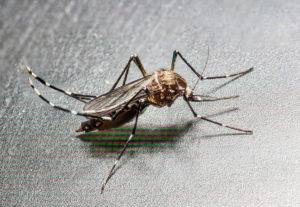Aedes aegypti mosiquito is vector for many flaviviruses including Dengue (DENV) and Zika (ZIKV) virus. Emergence of ZIKV in the America’s has increased the co-circulating geographical range of Dengue and Zika.
Studies have shown that severe DENV infection is commonly associated with a second DENV infection by a different DENV serotype. This complication has been hypothesised to be due to antibody (Ab)-dependent enhancement (ADE) or T cell original sin, where Abs or inappropriate T cell responses contribute to increased viral replication and disease pathogenesis.
Cross-reactive DENV and ZIKV Abs have the potential of cause ADE in DENV immune individuals who become ZIKV infected or vice versa occurs. Current available data, primarily from DENV infection mouse models indicate that serotype cross-reactive CD8 T cells responses can enhance DENV pathogenicity. However, other studies have shown a protective role of T cells, even in the presence of ADE. Very little is known about the immunological impact previous DENV exposure has on subsequent ZIKV infection.
Researchers, Wen et al., used mouse models to determine the role of DENV- cellular and humoral immunity in mediating cross-protection during sequential ZIKV infection. Wen et al. observed that DENV immunity reduced the infectious burden of ZIKV in tested mice. DENV-immune serum weakly neutralised ZIKV in vitro and did not limit ZIKV replication nor provide Ab cross-protection in vivo models. They observed high proportions of DENV-specific CD8 T cells that were cross-reactive to ZIKV and mediated cross-protection against ZIKV by limiting viral replication. Additionally, DENV-specific CD8 T cell responses were also capable of protecting mice from lethal doses of ZIKV, where 90% of mice that received DENV-exposed CD8 T cells survived compared to 10% of control mice.
Researchers demonstrated that protective DENV-cross-reactive immunity in subsequently ZIKV infected mice is mainly mediated by CD8 T cells responses and not Ab-mediated immunity.
Journal Article: Wen et al. 2017. Dengue virus-reactive CD8+ T cells mediate cross-protection against subsequent Zika virus challenge. Nature Communication
Journal Article by Cheleka AM Mpande.












